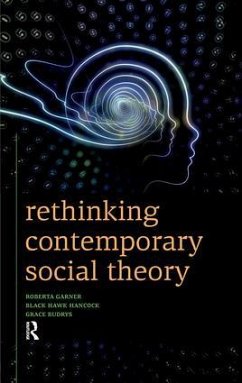
Dialogical Social Theory
Versandkostenfrei!
Versandfertig in 1-2 Wochen
168,99 €
inkl. MwSt.
Weitere Ausgaben:

PAYBACK Punkte
84 °P sammeln!
In his final work, Donald N. Levine, one of the great late twentieth century sociological theorists, brings together diverse social thinkers. This volume is Levine's most important contribution to social theory and a worthy summation of his life's work.













